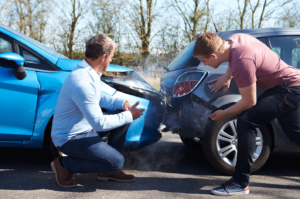Blog

Is Hydroplaning Considered An Automatic At-Fault Accident?
Contrary to what you may think, hydroplaning has nothing to do with hydroplanes. Instead, hydroplaning, also known as aquaplaning, is a driving incident that may occur while driving on wet roads. Specifically, hydroplaning happens when your vehicle tires encounter a layer of water that is deeper than the tires’ tread depth. The tire treads…

Who Is Allowed to Sue in a Fatal Car Accident?
Recent statistics reveal that over 46,000 people die in car crashes each year in the United States. The traffic fatality rate in our country is currently set at 12.4 deaths per 100,000 inhabitants. This translates to approximately 99 deaths on the road daily, with this worrying rate not showing signs of a decrease. Indeed,…

Can I Dispute Fault In A Car Accident?
Each state has its laws governing what happens in cases of car accidents. Such laws include the responsibilities of motorists, what is required in terms of insurance, and what happens when it comes to compensation that victims of car accidents may be entitled to for damages they have suffered in this context. Accordingly, applicable…

How Does a Lack of Car Seat Affect Liability in an Accident Claim
Car accidents killed or injured over 150,000 children under 16 in the US in 2020 [1]. Such accidents can have a long-lasting impact on everyone involved. Yet, despite the increased focus on safety, many people still do not use an appropriate car seat or booster seat when driving with young children. What happens if…

Victim’s Legal Rights in a Hit-and-Run Accident
According to the National Highway Traffic Safety Administration (NHTSA), about six million car accidents occur yearly in the United States. Many of these result in injuries of various degrees, with at least one driver or passenger injured in 43% of car crashes. Unfortunately, one of every 147 accidents results in fatal injuries, with the…

What Are My Rights in a Car Accident with an Uninsured Driver?
With the sole exception of New Hampshire, driving without adequate insurance is illegal throughout the United States. Even in New Hampshire—where having car insurance is not obligatory by law—drivers must still prove they have sufficient funds to meet their state’s motor vehicle financial responsibility requirements if they are involved in an “at-fault” accident. Each…